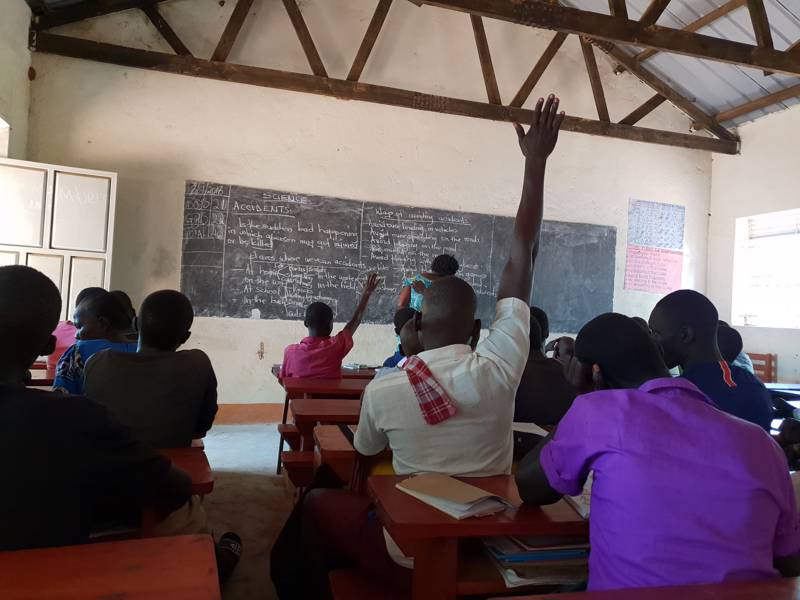Humanitarian crises can be major barriers to achieving Sustainable Development Goal #4 of inclusive and equitable education for all by 2030. When young people are forcibly displaced from their home communities due to war or natural disaster, they face numerous challenges in acquiring quality education. Many miss out on years of schooling in their displacement. According to the UNHCR, just 61% of refugee children attend primary school and 23% secondary school, while in comparison, 91% of children globally attend primary school and 84% secondary school.
What types of education programmes best help refugee children and youth who are overaged and out of school to complete formal schooling?
To ensure that displaced children and youth can acquire formal schooling, one programmatic approach that governments and non-governmental organizations (NGOs) have adopted is accelerated education programmes (AEPs). AEPs are flexible, age-appropriate programmes that are run in an accelerated timeframe, and which aim to provide access to education for disadvantaged, over-age, out-of-school children and youth. This may include those who missed out on, or had their education interrupted by, poverty, marginalisation, conflict, and crisis. The goal of Accelerated Education Programmes is to provide learners with equivalent, certified competencies for basic education using effective teaching and learning approaches that match their level of cognitive maturity.
While AEPs have become a popular education response during crisis situations, knowledge as to how they impact learners and communities is very limited. As part of an effort to enhance the evidence base for what works in education in emergencies, this project will conduct research on the impact of the Norwegian Refugee Council (NRC)’s Accelerated Education Programme (AEP) in Northern Uganda.
The primary objective of the proposed project is to provide rigorous evidence about the impact of Accelerated Education Programmes on improving equitable, quality education for displaced populations.
Secondary objectives include:
- To measure the impact of an AEP on education access (enrolment, retention and completion) and quality (learning outcomes).
- To study whether particular groups of disadvantaged refugee children and youth (such as girls, ethnic minorities, and children with disabilities) are disproportionally targeted for AEPs, and how their learning outcomes are compared to those of others.
- To assess the education transition prospects of AEP learners, and the impact of AEPs on social and economic outcomes, including attitudes and aspirations regarding education, and livelihoods.
- To explore community perceptions of AEPs.
- To provide concrete recommendations for improving AEPs.
- To engage policy actors in discussing approaches, findings, and policy responses.
- To disseminate research findings to the broader public.
Methodological approach
The project takes a mixed-methods approach, combining a randomised controlled trial (RCT), the gold standard for evaluating the effectiveness of interventions, with a community survey and qualitative fieldwork.
The research team includes Gudrun Østby, Kendra Dupuy & Siri Aas Rustad (PRIO), Andreas Kotsadam (Frisch Center, University of Oslo & PRIO); Mette Løvgren (Oslo Metropolitan University & PRIO); Martin Flatø (Norwegian Institute of Public Health); and Francis Mwesigye & Ibrahim Kasiryie (Economic Policy Research Centre, Makerere University). Non-academic partners include the Norwegian Refugee Council and the Accelerated Education Working Group.
The project is funded by Dubai Cares under the Evidence for Education in Emergencies (E-Cubed) research envelope, which was launched in partnership with the Inter-Agency Network for Education in Emergencies (INEE).











